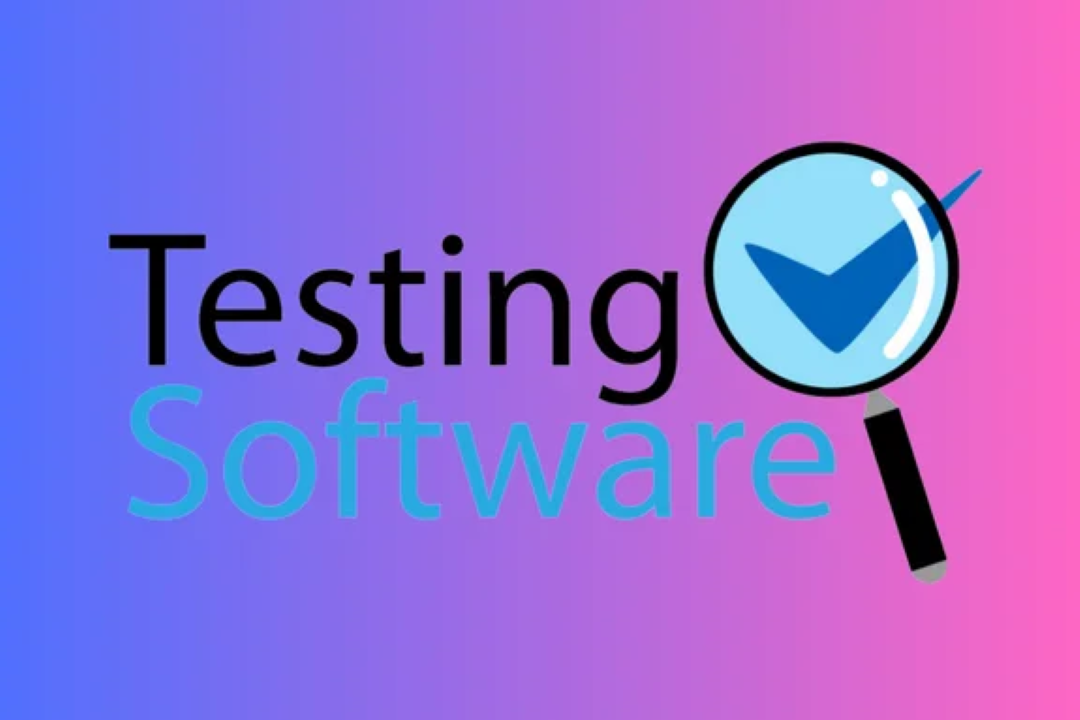Manual Testing Projects For Beginners
Manual testing projects for beginners involve hands-on exercises that enable aspiring Quality Assura
Manual Testing Projects For Beginners
Manual testing projects for beginners are essential for developing fundamental QA skills, as they provide hands-on experience in evaluating software applications without the aid of automated tools. These projects help novices learn key concepts such as test case creation, defect identification, and exploratory testing in real-world scenarios. By engaging in these practical exercises, beginners not only understand the software development life cycle but also gain insights into the importance of delivering high-quality products. This foundational experience is crucial for building confidence and competence, ultimately paving the way for a successful career in software testing.
To Download Our Brochure: https://www.justacademy.co/download-brochure-for-free
Message us for more information: +91 9987184296
Manual testing projects for beginners are essential for developing fundamental QA skills, as they provide hands on experience in evaluating software applications without the aid of automated tools. These projects help novices learn key concepts such as test case creation, defect identification, and exploratory testing in real world scenarios. By engaging in these practical exercises, beginners not only understand the software development life cycle but also gain insights into the importance of delivering high quality products. This foundational experience is crucial for building confidence and competence, ultimately paving the way for a successful career in software testing.
Course Overview
The “Manual Testing Projects for Beginners” course is designed to equip aspiring quality assurance professionals with essential testing skills through practical, hands-on projects. Participants will learn the fundamentals of manual testing, including test case writing, defect identification, test execution, and documentation. The course emphasizes real-world scenarios, allowing students to enhance their problem-solving abilities and gain confidence in their testing skills. By the end of the course, learners will be well-prepared to tackle real projects and contribute effectively to software quality assurance teams. This comprehensive training lays the groundwork for a successful career in manual testing.
Course Description
The “Manual Testing Projects for Beginners” course offers an immersive introduction to the field of quality assurance, focusing on essential manual testing techniques. Participants will engage in hands-on projects that cover key topics such as test case design, defect tracking, and test execution, enabling them to develop practical skills required to ensure software quality. By working on real-world scenarios, learners will gain valuable insights into the testing process, enhancing their confidence and proficiency. This course is ideal for newcomers to the software industry, providing a solid foundation to kickstart their careers in manual testing.
Key Features
1 - Comprehensive Tool Coverage: Provides hands-on training with a range of industry-standard testing tools, including Selenium, JIRA, LoadRunner, and TestRail.
2) Practical Exercises: Features real-world exercises and case studies to apply tools in various testing scenarios.
3) Interactive Learning: Includes interactive sessions with industry experts for personalized feedback and guidance.
4) Detailed Tutorials: Offers extensive tutorials and documentation on tool functionalities and best practices.
5) Advanced Techniques: Covers both fundamental and advanced techniques for using testing tools effectively.
6) Data Visualization: Integrates tools for visualizing test metrics and results, enhancing data interpretation and decision-making.
7) Tool Integration: Teaches how to integrate testing tools into the software development lifecycle for streamlined workflows.
8) Project-Based Learning: Focuses on project-based learning to build practical skills and create a portfolio of completed tasks.
9) Career Support: Provides resources and support for applying learned skills to real-world job scenarios, including resume building and interview preparation.
10) Up-to-Date Content: Ensures that course materials reflect the latest industry standards and tool updates.
Benefits of taking our course
Functional Tools
1 - JIRA: JIRA is a popular issue and project tracking tool widely used in software development and testing. It allows testing teams to log defects, track their status, and manage testing workflows efficiently. By using JIRA, students learn how to document test cases and defects, prioritize tasks, and collaborate seamlessly with development teams. Understanding JIRA equips students with skills that are highly sought after in the job market, making them effective contributors in Agile environments.
2) TestRail: TestRail is a test management tool that helps teams organize, manage, and track their testing efforts. In the course, students are trained on how to create test plans, design test cases, and execute tests within TestRail. The tool’s reporting capabilities enable students to analyze testing progress and results effectively. Familiarity with TestRail ensures that students develop a structured approach to testing, supporting better project management and communication within teams.
3) Selenium: Although primarily associated with automated testing, beginners in manual testing can still benefit from understanding Selenium's capabilities. Students are introduced to Selenium's framework, helping them grasp how manual testing connects with automation. This understanding allows students to appreciate how manual testing processes can be enhanced through automation tools like Selenium, broadening their skill set and preparing them for potential future roles in automated testing.
4) Postman: Postman is a widely used tool for API testing that allows users to create and execute APIs with ease. In the manual testing projects for beginners course, students learn how to use Postman for validating API endpoints and ensuring they function correctly. By practicing API testing with Postman, students gain valuable insights into the importance of back end testing, enhancing their overall software testing knowledge and capabilities.
5) Excel: Microsoft Excel remains a versatile tool for manual testers for organizing test cases, tracking defects, and reporting results. The course emphasizes the importance of Excel in test data management, enabling students to create and maintain comprehensive spreadsheets for tracking testing progress. Students learn how to leverage Excel for data analysis and reporting, essential skills that complement their understanding of manual testing practices.
6) Bugzilla: Bugzilla is an open source bug tracking system that facilitates effective defect management. Students are taught to navigate Bugzilla for reporting, tracking, and resolving defects discovered during testing. Understanding this tool helps students grasp the nuances of defect lifecycle management and enhances their collaborative capabilities with development teams as they learn proper defect reporting and tracking techniques.
7) TestLink: TestLink is an open source test management tool that helps teams create, manage, and execute test cases. In the manual testing course, students learn how to create comprehensive test plans and link them to requirements and test cases. This training equips them with the skills to maintain traceability throughout the testing process, ensuring that all requirements are verified and validated effectively. Understanding TestLink enhances students' ability to contribute to structured testing efforts within teams.
8) Zephyr: Zephyr is another popular test management tool that integrates seamlessly with JIRA. The course includes training on how to use Zephyr for test case creation, execution, and reporting. Students learn to track real time testing metrics, which facilitate better project oversight and allow for adaptive responses to project challenges. Proficiency in Zephyr prepares students to work within JIRA ecosystems, enhancing their employability in Agile and Scrum environments.
9) QASE: QASE is a modern test management tool that supports both manual and automated testing. The course introduces students to QASE's user friendly interface for creating test cases and managing testing resources efficiently. Students learn how to collaborate with team members, track test execution, and analyze results to improve software quality. Familiarity with QASE enables students to keep pace with evolving testing methodologies, making them valuable assets in dynamic project environments.
10) Applitools: For manual testers interested in visual validation, Applitools offers powerful capabilities for automated visual testing. The course covers the fundamentals of visual testing and how Applitools can enhance the testing process by ensuring that user interfaces appear correctly across different devices and resolutions. Understanding visual testing helps students recognize its importance in delivering seamless user experiences, vital for modern software applications.
11 - Charles Proxy: Charles Proxy is a web debugging tool that allows students to monitor and analyze HTTP/HTTPS traffic between their computer and the internet. Through the course, students learn how to visualize API requests and responses, which assists in manual testing of web applications. Mastery of Charles Proxy enhances students’ testing capabilities by providing insights into application behavior and performance, making them proficient testers in web environments.
12) Fiddler: Similar to Charles Proxy, Fiddler is a web debugging proxy that helps in monitoring HTTP and HTTPS traffic. By incorporating Fiddler into the manual testing curriculum, students gain hands on experience in troubleshooting application issues at the network level. Learning how to use Fiddler enables students to identify potential issues related to API performance and data flow, enhancing their analytical skills essential for effective testing strategies.
13) JMeter: While primarily a performance testing tool, JMeter's ability to simulate various types of requests can also benefit manual testers. The course introduces students to performance testing concepts, demonstrating how JMeter can be used to validate the load capacity of applications during manual testing phases. Knowledge of JMeter equips students with performance testing insights, ensuring they can contribute to comprehensive testing efforts that include performance considerations.
14) Mind mapping tools (e.g., XMind, MindMeister): Mind mapping tools can be useful for manual testers to structure their test case writing and planning. The course emphasizes the importance of visual organization in the testing process, helping students break down complex applications into manageable test scenarios. By utilizing mind mapping tools, students develop critical thinking and organizational skills that enhance their overall testing strategy.
15) Google Analytics: Understanding user behavior and analytics is crucial for testers, particularly for manual testers involved in web applications. The course provides insights into how to leverage Google Analytics data to influence testing strategies and identify key areas for validation and performance checks. This skill enables students to consider user perspectives in their testing efforts, making them more effective in ensuring product quality.
16) Slack: As a collaboration tool, Slack plays a vital role in modern software teams. The course introduces students to effective communication techniques within testing teams using Slack, fostering collaboration and information sharing. Learning to use Slack enhances students’ teamwork abilities, equipping them to work closely with developers, project managers, and other stakeholders in Agile projects.
By incorporating these additional points, the manual testing projects for beginners course at JustAcademy provides a rounded education, ensuring students are well equipped with both technical skills and collaborative tools necessary for success in the software testing field.
Browse our course links : https://www.justacademy.co/all-courses
To Join our FREE DEMO Session:
This information is sourced from JustAcademy
Contact Info:
Roshan Chaturvedi
Message us on Whatsapp: +91 9987184296
Email id: info@justacademy.co
android and iOS app development course
Best React Native Training Courses With Job Placement In Shirdi












